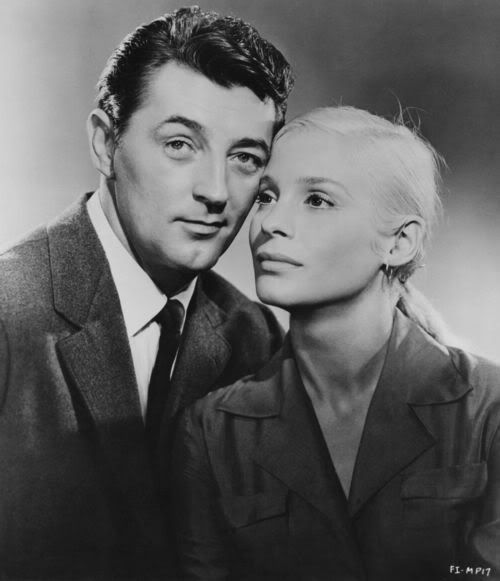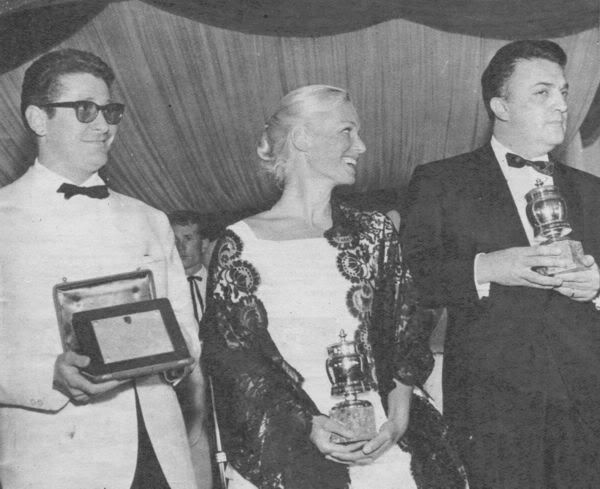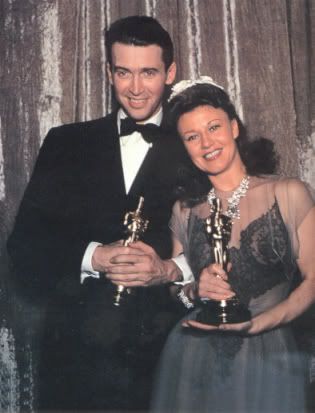
89-The Philadelphia Story - Director:George Cukor - Cast:Cary Grant, Katharine Hepburn, James Stewart, and Ruth Hussey.
" Howard Hughes bought the movie rights for me. Howard was no fool,he knew that every actress would want it,and was afraid that nobody would want me in it.Now,it was mine.I sold it to L.B.Mayer at Metro on condition that I play the lead.I asker for Clark Gable and Spencer Tracy to play opposite me.I got Jimmy Stewart and Cary Grant--not bad."
-Katharine Hepburn-
------
"I understood Tracy Lords.I knew what made her tick.I gave her life,she gave me back my career"
-Katharine Hepburn-
--------
"Q(Joan Bakewell): You were nominated, I believe, for an Academy Award for that film. In fact, you won your Academy Award for Philadelphia Story. Was it fun to make?
Jimmy Stewart: Yes. Miss Hepburn and Cary [Grant]... The whole thing. I, frankly, have always felt that they gave me the Academy Award for Mr Smith instead of this picture as a sort of consolation thing, 'Ah, poor Jim, the competition was too tough last year, but we'll give it to him anyway'. This is just a personal opinion, I don't know.
Q: Your acting looks effortless. Can you explain the effort that goes into this?
Jimmy Stewart: Well, I think one of the main things that you have to think about when acting in the movies is to try not to make the acting show. It's such an intimate thing that you have to make a thing believable without using the device of acting. That doesn't make any sense at all.
----------
"Everyone grows older, except Cary Grant."
-Grace Kelly- (who was the star of "High Society"-the musical remake of The Philadelphia Story)
-----
" My first great chance came in 1936, when I was borrowed by RKO for 'Sylvia Scarlett'(Cukor) playing opposite Katharine Hepburn. This picture did nothing to endear its female lead to the public, but it helped me to success. For once, the audiences and the critics did not see me as a nice young man, with regular features and a heart of gold. After this picture I made one after another, probably too many. "
-Cary Grant-
-------
"The fan magazines say I am a happy man. Columnists published that I received 125,000 dollars for The Philadelphia Story. They print a lot of things about me - even that Hollywood had given me a guarantee of 500,000 dollars in addition to a ten per cent share of the world-wide gross of the picture Guns of the Navarone. The columnists predicted I would marry Sophia Loren, after they had guessed on Ingrid Bergman first. Every reporter claims I'm happy. To all of this I say: Learn how to be unhappy. If you have never been unhappy, you cannot possibly know what happiness is. Happiness is a matter of degree. The greatest unhappiness in the world belongs to the rich boy who receives a yacht for Christmas when he expected a private airplane. The greatest happiness belongs to the poor man who learns that he does not have cancer after being told that cancer was suspected. "
-Cary Grant-
--------
"Truthfully, the psychology of the story is a specious as a spiel, and, for all the talk about the little lady being "a sort of high priestess to a virgin goddess," etc., she is and remains at the end of what most folks would call a plain snob. But the way Miss Hepburn plays her, with the wry things she is given to say, she is an altogether charming character to meet cinematically. Some one was rudely charging a few years ago that Miss Hepburn was "box-office poison." If she is, a lot of people don't read labels - including us.
But she isn't the only one who gives a brilliant performance in this film. James Stewart, as the acid word-slinger, matches her poke for gibe all the way and incidentally contributes one of the most cozy drunk scenes with Miss Hepburn we've ever seen. Cary Grant, too, is warmly congenial as the cast-off but undefeated mate, and Ruth Hussey, Virginia Weidler, Roland Young and Mary Nash add much to the merriment.
Provided you have a little patience for the lavishly rich, which these folk are, you should have great fun at "The Philadelphia Story." For Metro and Director George Cukor have graciously made it apparent, in the words of a character, that one of "the prettiest sights in this pretty world is the privileged classes enjoying their privileges." And so, in this instance, will you, too.
-The New York Times-Dec.1940 (Bosley Crowther)















